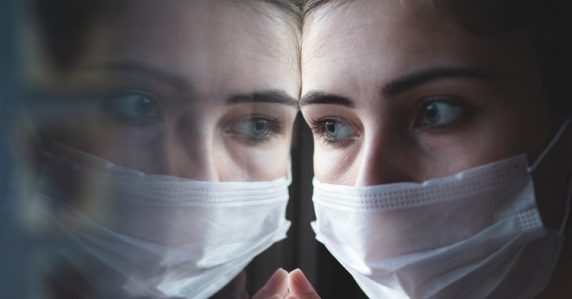BMA calls for ‘urgent progress’ on recognising long Covid as occupational disease

The BMA has urged the Government to make ‘urgent’ progress on recognising long Covid as an occupational disease and provide more support for doctors affected.
It is a year since the Industrial Injuries Advisory Council (IIAC) found ‘robust evidence’ for five conditions from complications of Covid-19 infection that should be prescribed as an occupational disease for health and social care workers, the BMA said in a statement with the Royal College of Nursing (RCN).
Yet to date there has been no response to the report from the Government around classing the conditions as an occupational disease.
The long Covid conditions listed by the IIAC were:
- persisting pneumonitis or lung fibrosis following acute Covid-19 pneumonitis
- persisting pulmonary hypertension caused by a pulmonary embolism developing between 3 days before and 90 days after a diagnosis of Covid-19
- ischaemic stroke within 28 days of a Covid-19 diagnosis;
- myocardial infarction within 28 days of a Covid-19 diagnosis;
- symptoms of post intensive care syndrome following ventilatory support treatment for Covid-19
Designating these as an occupational disease as recommended by the IIAC, would mean healthcare staff, could receive specific financial assistance in recognition that they had, more than likely, caught the initial infection at work, the BMA said.
It would mark a ‘significant first step’ towards recognising long Covid, and the broader range of symptoms it includes, as an occupational disease in health and social care workers, the BMA and RCN statement added.
In a letter to the secretary of state for work and pensions, the unions urged him to act on the paper’s recommendations.
They point out that more than 50 countries worldwide already provide formal legal recognition for key workers who contracted Covid-19 after exposure in the workplace, and offer corresponding compensation and support schemes.
A BMA survey of doctors with long Covid earlier this year found that 77% of those who caught Covid-19 in the first wave of the pandemic believed that they contracted it in the workplace and 18% reported they were now unable to work due to their ill-health.
Almost half of doctors with long Covid responding to the survey said they had experienced some form of loss of earnings.
BMA council chair Professor Phillip Banfield added: ‘A year after the IIAC made clear recommendations for the Government to recognise the increased risk that health and social care workers face from Covid-19 and its potentially devastating long-term health effects – and so far there’s been silence in response from ministers
‘Doctors and their colleagues were betrayed during the pandemic when they were left unprotected as they continued to go to work and confront this deadly disease on a daily basis. Now those who are suffering the long-term impacts are being betrayed once again.
‘Making these conditions an occupational disease cannot give healthcare workers back the quality of life and ability to work stolen by Covid-19, but it would be an important first step in providing much-needed financial support to staff living with the long-term effects.’
The Government is understood to be carrying out a detailed assessment of the IIAC recommendations.
A Government spokesperson said: ‘We recognise that long Covid has debilitating impacts on people’s physical and mental health and are backing our world-leading scientists with over £50 million to better understand the long-term effects of this virus and make treatments available.
‘We continue to support the NHS workforce with sickness absence and NHS terms and conditions provide generous support for NHS staff with up to six months full pay and six months half pay, depending on length of service.
‘In total, we have invested £314 million to establish specialist services throughout England to direct people experiencing long Covid into the right treatment and rehabilitation services, including occupational health services.’
Pulse October survey
Take our July 2025 survey to potentially win £1.000 worth of tokens

Visit Pulse Reference for details on 140 symptoms, including easily searchable symptoms and categories, offering you a free platform to check symptoms and receive potential diagnoses during consultations.









